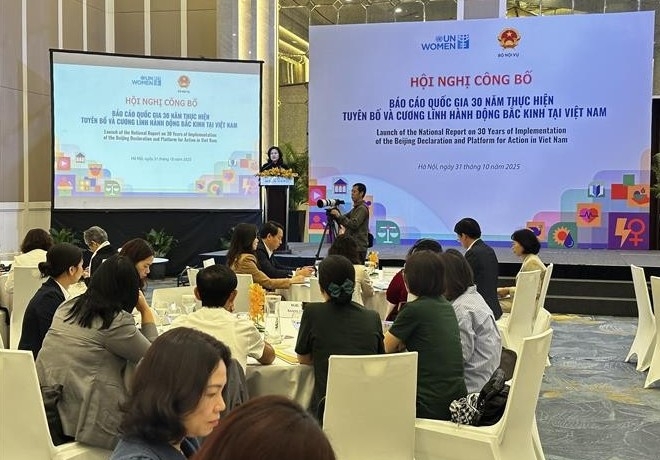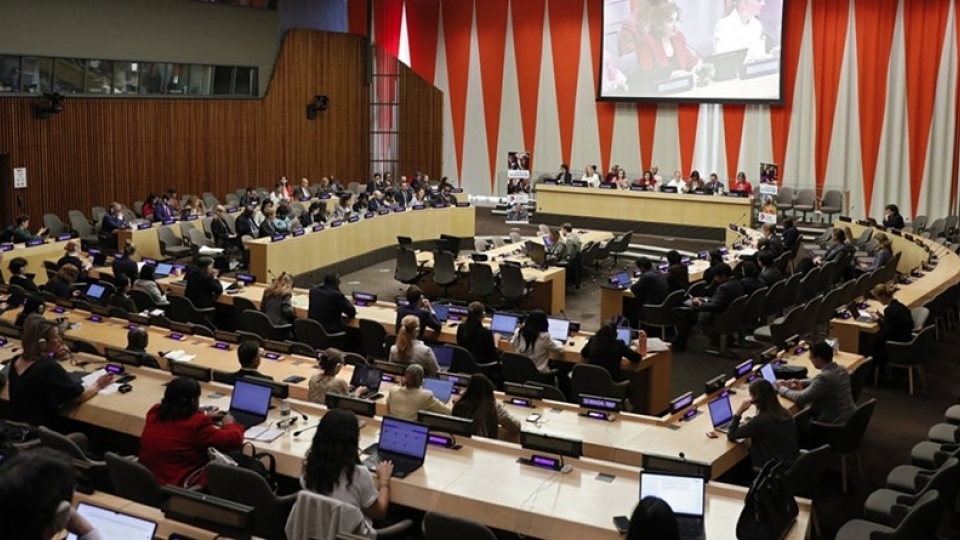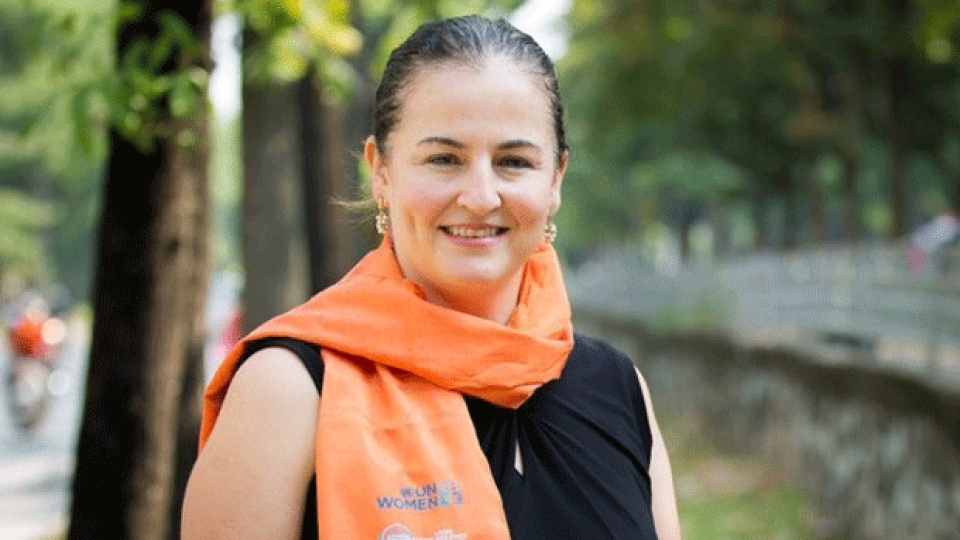Report on 30 years of implementation of Beijing Declaration and Platform for Action released
VOV.VN - The Ministry of Home Affairs, in collaboration with the United Nations Entity for Gender Equality and the Empowerment of Women (UN Women) in Vietnam, released National Report on 30 Years of Implementation of the Beijing Declaration and Platform for Action (1995-2025) at a conference held in Hanoi on October 31.

Implemented widely in Vietnam over the past 30 years, the Beijing Declaration and Platform for Action (BPFA) has served as a key driver of positive change in promoting gender equality, contributing significantly to the country’s development and progress.
According to the report, one of Vietnam’s most notable achievements in promoting gender equality, and also its major accomplishment in carrying out over the past five years is the adoption and nationwide rollout of the National Strategy on Gender Equality for the 2021-2030 period.
The was adopted at the Fourth World Conference on Women, held in Beijing, China, in 1995, with the participation of 189 countries. It represents a global commitment to advancing the interests and rights of women at the turn of the 21st century.
The BPFA was adopted at the Fourth World Conference on Women, held in Beijing, China, in 1995, with the participation of 189 countries, as a global commitment to advancing the concerns and rights of women around the world at the end of the 20th century.
Over the past three decades, particularly during 2019-2023, the Vietnamese Government has demonstrated strong determination to advance gender equality between women and men through continuous improvement of its legal framework. Vietnam regards gender equality as a foundation for social progress and sustainable development, with the principle of “leaving no one behind” mainstreamed across all national strategies, policies, laws, and development programs.
Speaking at the ceremony, Deputy Minister of Home Affairs Nguyen Thi Ha stressed that Vietnam has learned a key lesson: economic growth must go hand in hand with social progress and justice, placing women and children at the heart of all development policies, while strengthening state management systems and gender mainstreaming across all sectors and levels.
“The national report on the implementation of the BPFA is not only a summary of achievements but also a strong reaffirmation of Vietnam’s commitment to promoting gender equality and women’s empowerment in the years ahead,” Deputy Minister Ha emphasized.
Caroline Nyamayemombe, Country Representative of UN Women in Vietnam, said that 30 years after the BDFA was approved, no country in the world has achieved full gender equality. As the global community approaches the final stretch toward 2030, Vietnam stands among the nations showing strong national ownership and forward-looking vision on gender equality.
The UN Women Representative affirmed that UN Women remains committed to working with the Ministry of Home Affairs, government agencies, mass organizations, and development partners to translate Vietnam’s strong political commitments into practical results for women and girls, in every province, every community, and every family.”
Building on an increasingly robust policy framework, Vietnam has achieved encouraging progress in practice. The report highlights that “over the past 20 years, Vietnam has been recognized as one of the countries narrowing the gender gap most rapidly and among the earliest to achieve the Millennium Development Goal 3 (MDG 3) on gender equality, while continuing efforts toward Goals 5 and 10 on eliminating inequalities, promoting gender equality, and empowering women and girls.
In 2024, Vietnam ranked 72nd among 146 countries in the Global Gender Gap Index, up 11 places from 2022. Women make up 30.26% of National Assembly deputies, among the highest in the Asia-Pacific region; account for 46.8% of the national labor force, with a female labor force participation rate of 62.4%; and lead 28.2% of all businesses. The gender gap in basic education has been narrowed, health care for ethnic minority and migrant women strengthened, and services supporting survivors of gender-based violence expanded and improved.
On April 9, 2024, the UN Economic and Social Council (ECOSOC) elected Vietnam to the Executive Board of UN Women for the 2025-2027 term.
Despite these achievements, challenges remain, including persistent gender stereotypes, limited sex-disaggregated data, rapid population aging, and the disproportionate impacts of climate change, natural disasters, and epidemics on women and children. Tackling these issues requires Vietnam’s entire political system to sustain high political will and implement strategic, innovative, and internationally cooperative solutions.
At the report launch, participants discussed in depth the realities of women’s lives, work, and welfare in the current context; shared practical initiatives and recommendations to further promote gender equality and empower women and girls.
The outcomes of the discussion will serve as a key reference for improving policies, stepping cooperation, and mobilizing resources to ensure the effective implementation of the National Strategy on Gender Equality 2021-2030 and the 2030 Agenda for Sustainable Development, ensuring that no one is left behind.




